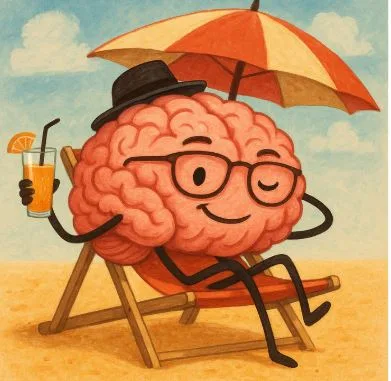How Artificial Intelligence Can “Switch Off” the Brain: What Scientists Say About the Harm of AI in Writing
If you want to keep your mind sharp and stay quick-witted to continue placing successful bets in national casino australia, then stop relying solely on artificial intelligence and train your brain as well.
These days, many of us have used ChatGPT at least once to write something quickly, simplify a text, or “translate it into human language.” Convenient? Absolutely. Efficient? Probably. But here’s the question: Are we becoming lazier and… dumber because of all this digital help? It turns out — yes. And it’s not just speculation anymore, but a scientifically proven fact.
A study from the MIT Media Lab, titled “Your Brain on ChatGPT: Accumulating Cognitive Debt When Using an AI Assistant for Essay Writing,” looked into what happens to our brains when we regularly use artificial intelligence to write texts. And the results are, to put it mildly, concerning.
How the Study Was Conducted
Fifty-four students participated in the study. They were divided into three groups:
- LLM group (Large Language Model) — those who wrote essays using ChatGPT.
- Search Engine group — those who used Google and searched for information on their own.
- Brain-only group — students who wrote essays entirely on their own, without any digital assistance.
The experiment ran over four sessions, and participants’ brain activity was monitored using electroencephalography (EEG) — a technology that allows real-time observation of how the brain works. The essays were evaluated by both human instructors and text analysis algorithms.
What Did They Find?
The most troubling results came from the group that actively used ChatGPT. With each session, their brain activity decreased. Researchers recorded a decline in neural connectivity, memory, engagement, the ability to formulate thoughts, and even self-esteem — participants were less confident they had written a good text and struggled to recall its content.
In other words, the more a person relied on AI, the less they thought for themselves.
The scientists referred to this phenomenon as cognitive debt — much like financial debt: it’s convenient now, but you pay the price later. In this case, the price is a decline in mental abilities.
Even four months later, the effect persisted. Participants from the ChatGPT group continued to lag behind the others — both in terms of brain activity and their ability to express and support their thoughts.
And This Isn’t an Isolated Case
Similar results came from another study — this time involving adult professionals from various fields. It was conducted as part of a project on the impact of generative AI on critical thinking.
That research revealed that people who actively used AI in their work eventually began to:
- Question and verify information less often
- Struggle more to spot logical fallacies
- Avoid mental effort
- Lose confidence in their own conclusions and ideas
In plain terms, critical thinking “switched off” whenever a bot assistant was around.
Why Does This Happen?
When we write something ourselves, we activate many areas of the brain: planning, structuring, recalling facts, analyzing, formulating, editing, choosing words, and trying to be original. All of this is mental exercise, and like physical exercise, it helps keep us in shape.
But when “everything is already written” for us — the brain doesn’t need to strain. It relaxes, and if this pattern repeats often enough, it simply… deteriorates. It’s like switching from walking to a wheelchair: at first it’s convenient, but then your muscles begin to atrophy.
What Can We Do?
This doesn’t mean AI is evil. It has a lot of advantages: it handles routine tasks, speeds up processes, and can be useful for brainstorming or drafting. But it’s important not to hand everything over to it — especially when it comes to creative or cognitive tasks.
Here are a few simple tips to avoid “switching off” your brain:
- Use AI as a helper, not an author. Let it suggest ideas — and you choose and refine them.
- Always double-check what it writes: verify facts, look for mistakes, and rewrite it in your own words.
- Once a week, write something on your own — without AI, without Google. Just a couple of paragraphs. It keeps your memory and thinking sharp.
- If you’re a student or a professional who relies on critical thinking — take breaks from using AI and watch whether your writing style is becoming too generic or formulaic.
The Bottom Line
AI is a powerful tool. But like any tool, it needs to be used wisely. If we hand over too much, we risk losing the very skills that used to be our strength.
So — don’t be lazy to think. Don’t hand over your ideas completely to the machine. And don’t turn your brain into a passive observer. Because, as science shows, when we stop thinking — the brain decides it has nothing left to do.
So yes, we support AI — but only with our heads. With active, alert, thinking minds.




